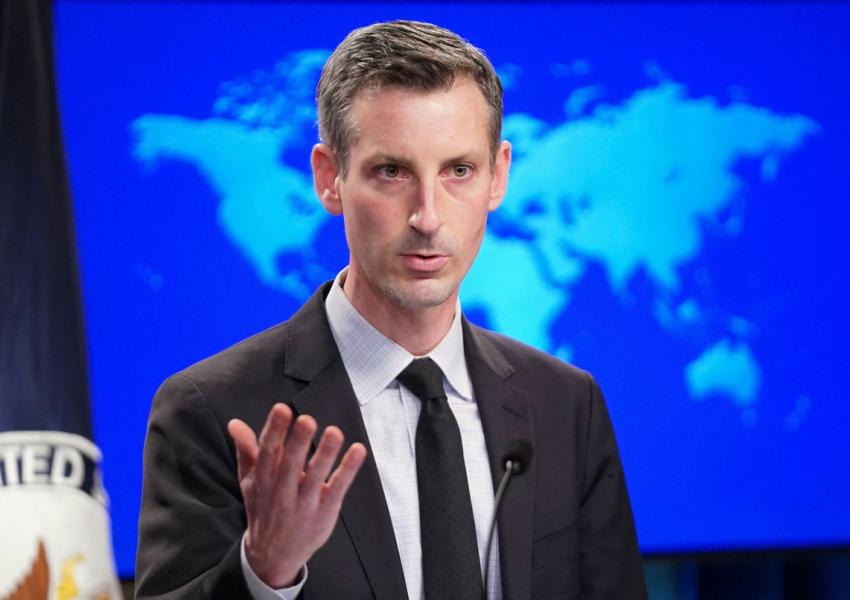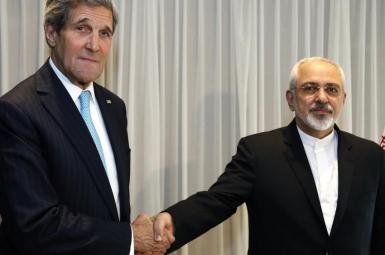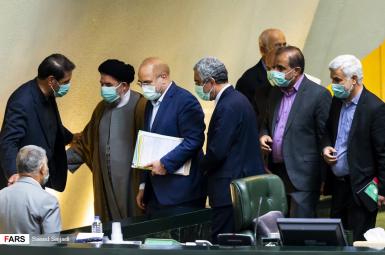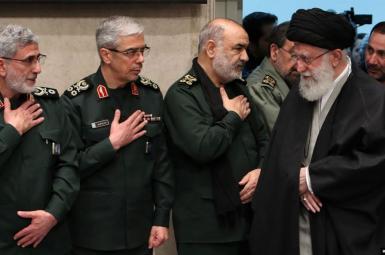
Zarifgate Tape Ruffles Feathers In Washington
The taped interview with Iranian Foreign Minister Mohammad Javad Zarif, recorded in March and released by Iran International Sunday, created a stir Monday at the Washington press briefing of Ned Price, State Department Spokesman.
Price attempted to focus on the challenge of reviving Iran’s 2015 nuclear deal with world powers, thereby preventing Tehran from "ever obtaining" a nuclear weapon. He had no desire to be dragged into discussing the divisions in Iran highlighted by ‘Zarifgate.’
But this proved difficult – especially as the recording included Zarif’s suggestion that the late Revolutionary Guards commander Qasem Soleimani had co-operated with Moscow in trying to undermine the 2015 deal, or at least to undermine any potential rapprochement between Iran and the West.
"Iran’s possession of a nuclear weapon would not be in the interests of the United States, it would not be in the interests of our European partners, it would not be in the interest of the Chinese, it would not be in the interest of the Russians," said Price.
The spokesman insisted that the signing and successful implementation of the nuclear deal – the JCPOA, Joint Comprehensive Plan of Action – spoke "to some potential possibility" of the US being able to revive the agreement given suitable commitment from Iran. Moscow, Price said, could speak for itself: "I would just add the point that a nuclear-armed Iran is not in Moscow’s interest."
Iran Divisions Highlighted
Price said he could not vouch for the authenticity of the Zarif tape, and would be dragged into assessing politicking in Iran, where differences between Zarif and Soleimani, who was killed in Baghdad by a US drone strike in January 2020, were dramatically highlighted by the tape. Rivalries in Iran are also sharpening in the run-up to June’s presidential elections.
"Whatever the internal politics that were involved, whatever the geopolitical dynamic…that culminated with the July 2015 agreement, we were able to negotiate successfully with Iran in the past, in the context of the P5+1,” Price said, referring to the five permanent members of the UN security council − including Russia − plus Germany. “Our focus today remains on determining…whether we can do so again.”
Price refused be drawn into commenting on Zarif's claim in the tape that John Kerry, then secretary of state and now President Biden’s special envoy for climate change, had spoken to him about Israeli operations in Syria. Israel began its attacks in Syria in 2013 but they did not CONFIRM them until 2018.
Price did not discuss dates. "I would just make the broad point,” he noted, “that if you go back and look at press reporting from the time, this certainly was not secret, and governments that were involved were speaking to this publicly on the record."
Biden Critics Emboldened
As well as highlighting differences in Tehran, Zarifgate has emboldened critics of the Biden administration. While Kerry has denied he discussed Israeli operations with Zarif, Republicans have accused him of betraying Israel and some demanded his removal from security briefings until the veracity of Zarif's remarks is determined.
Senator Rick Scott said(link is external) on Monday that Kerry should resign if the "deeply disturbing" allegations were true. Mike Pompeo, the Secretary of State who under Donald Trump introduced draconian sanctions against Iran, joined the fray, tweeting in defense of the Soleimani strike, which was judged unlawful killing by the United Nations special rapporteur Agnes Callamard.
"Our Administration’s exquisite strike on Qasem Soleimani had a massive impact on Iran and the Middle East. You don’t have to take my word for it. Ask @JZarif. President Biden still thinks it was a mistake," Pompeo wrote.
In a column for Bloomberg, JCPOA critic Eli Lake argued Monday that the Zarif tape showed Russia should be “kicked out” of the Vienna talks, where remaining JCPOA signatories – China, France, Germany, Iran, Russia and the United Kingdom are discussing, with indirect US participation, reviving the agreement. Talks are focused on which American sanctions would need to be lifted, which steps in the Iranian nuclear program reversed, and how to synchronize the process.








